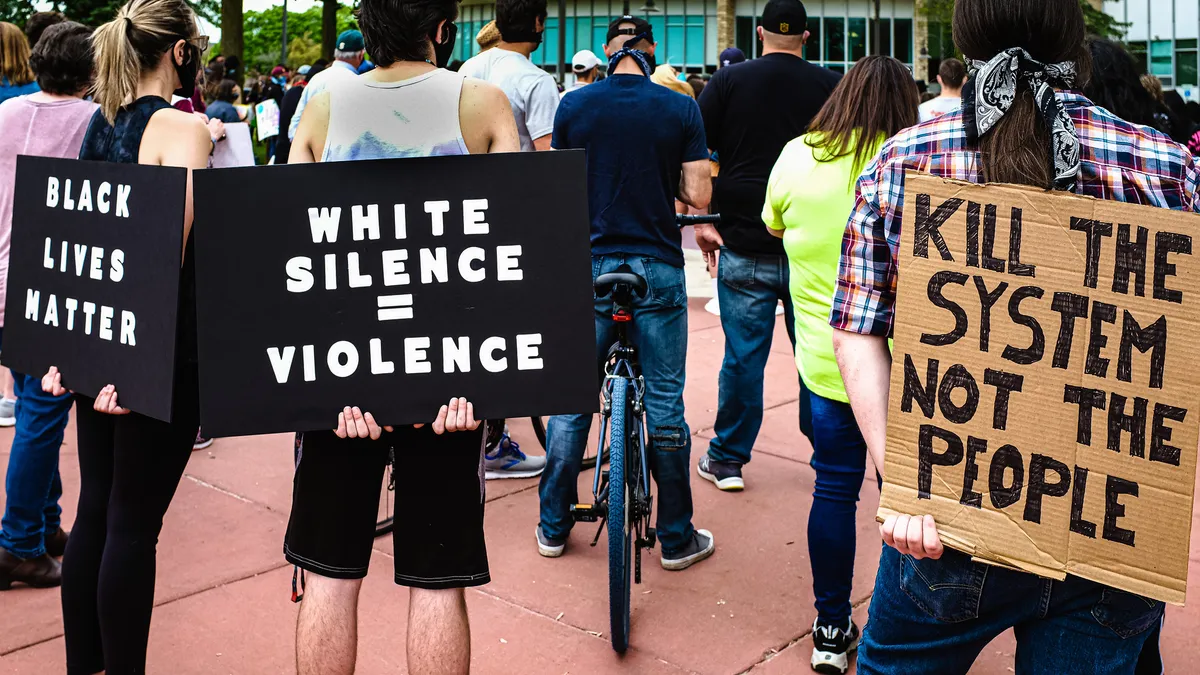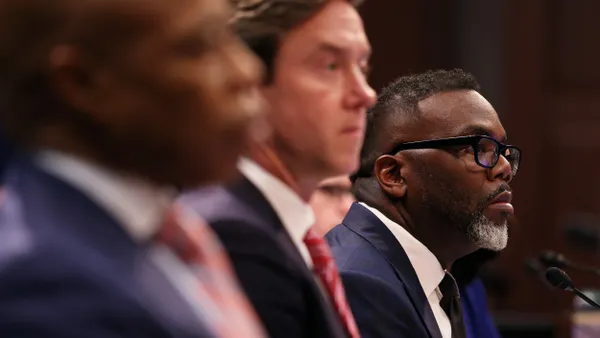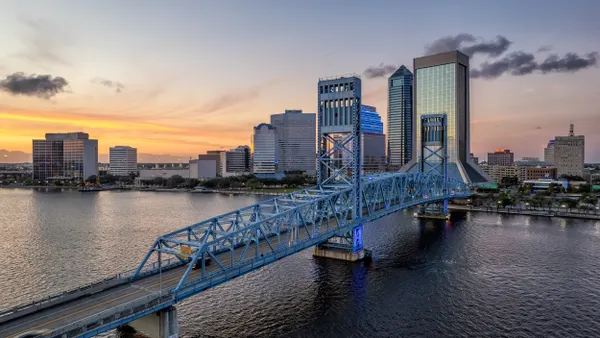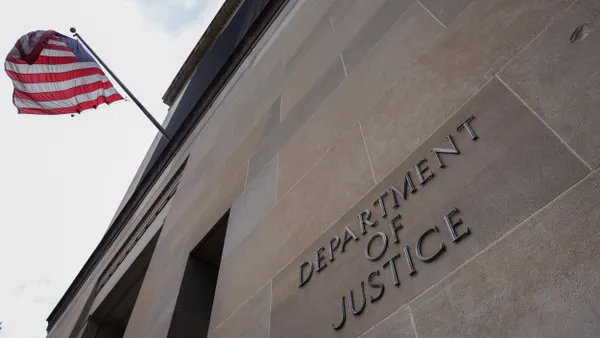The killing of George Floyd by Minneapolis police officers on May 25 has resulted in national protests, with many now centered on calls to defund city police departments and rethink officers' use-of-force protocols.
Such demands may drive unprecedented change in Minneapolis, where nine city council members pledged on Sunday to begin efforts that will end the Minneapolis Police Department.
BREAKING: Minneapolis City Council members have announced their intent to disband the Minneapolis Police Department and invest in community-led public safety.
— ACLU of Minnesota (@ACLUMN) June 7, 2020
The council members said the move, which reportedly lacks the full support of Mayor Jacob Frey, would foster a "new, transformative model for cultivating safety in Minneapolis," the Star Tribune reports. What that model looks like, however, is currently unclear.
Minneapolis isn't the only city to inch toward police reform and disinvestment amid the protests. In New York, Mayor Bill de Blasio pledged Sunday to divert an undisclosed amount from the city's police department budget, which currently sits at $6 billion annually, to social services, the New York Times reports. In Los Angeles, Mayor Eric Garcetti vowed to cut up to $150 million from his police department's budget following rallies from activists.
As more cities consider similar moves to divert police funding and reform policies, they must first consider how changes will impact those in marginalized communities, and understand the challenges those communities face, Rochester, NY Mayor Lovely Warren said in an Axios webinar on Friday.
Rochester has made a number of reforms in its police department, Warren said, including mandating officer-worn body cameras, training officers not to use choke-holds when they restrain suspects and introducing a civilian police accountability review board — albeit with the latter subject to a court challenge by the local police union. Warren said there is more to be done, and while continued protests should spur further action, cities have to make policy discussions and changes a regular occurrence.
"This is not something you can just do in times of turmoil," Warren said. "This is something that you have to make a part of your everyday business. I believe the relationships between the community and the police will get better because of it."
Also during the webinar, NAACP President and CEO Derrick Johnson said that, to overcome a "systemic, decades-long problem of racism," cities will need to provide greater transparency into officers' behavioral history and reexamine the policy of qualified immunity, which can make it difficult to prove an officer’s intent is to cause a suspect harm.
"The energy that we've seen across our country over the past week or so is the energy that built this country, it's the energy that threw tea into the sea, it's the energy that abolished slavery, it's the energy that saw us through civil rights."

Melvin Carter
Mayor, St. Paul MN
St. Paul, MN Mayor Melvin Carter said those protesting must continue to raise their voices in every place they can, as the sheer force of public pressure will force elected officials to make changes.
"I'm not asking for people to be patient; I'm not asking for people to wait while we slowly and incrementally turn the tide of unarmed, unaggressive Black men and Black women killed by law enforcement," Carter said. "I'm asking people to be just as impatient. I'm asking people to press justice hard, I'm asking people to push just as aggressively and just as assertively on social media, in the community, at state capitols, in Washington, DC, and in every other venue we can."
Rep. Bobby Rush, D-IL, a veteran of the civil rights era, echoed that sentiment on the webinar, saying there must be "sustained organizing in the community" and a bringing-together of various viewpoints in a coherent way, as "spontaneity won't get you anywhere."
Carter said that sustained organization must continue — and that it gives him hope for the future.
"Make no mistake: The energy that we've seen across our country over the past week or so is the energy that built this country, it's the energy that threw tea into the sea, it's the energy that abolished slavery, it's the energy that saw us through civil rights," he said. "That's the only way. I'm a well-intentioned mayor and I'm working on this, our governor, our mayors, our senators and legislators. We've already proven, we cannot do this, we cannot turn this tide without the force and energy of the American people that we’ve seen this week."












